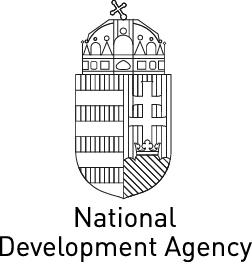Evaluations of the Economic Operational Programmes (ECOP)
Evaluation of NDP I „investment support granted for small and medium enterprises (ECOP 2.1.1)
The evaluation assessed technological development assistance granted for small and medium enterprises within the framework of the Economic Competitiveness Operational programme of the National Development Plan. The assessment was carried out by applying the following two methodologies:
- unpaired comparisons method, and
- paired comparisons model
The two methods generated similar numerically quantified results:
- Enterprises effectively implemented a higher volume of investments than they could have without being granted funding; however, the impacts of the paired model were significantly lower.
- Growth impacts could not be explicitly demonstrated over the monitored period, i.e. in spite of additional investments enterprises were not capable of significantly increasing sales.
In addition, the assessment also presented two other key remarks:
- Enterprises taking part in the tendering system were larger than others and grew at a faster pace in relation to other enterprises even at the point of departure;
- Even enterprises that submitted applications, however not granted funding, implemented a significantly higher volume of investments.
Comprehensive evaluation of equipment procurement calls HSRF, TDF, ECOP 3.2.1 and ECOP 3.3.2.
The National Development Agency commissioned KPMG to carry out the evaluation of Hungarian technological equipment procurement programmes (HSRF – Hungarian Science and Research Fund, TDF – Technological Development Fund, ECOP 3.2.1 and ECOP 3.3.2.), which was completed at the end of 2007. The objective of the assessment was to present an overview of the relevance, efficiency and effectiveness of equipment procurement calls announced so far, provide help to improve the quality of interventions, support the planning of future programmes and the consistent elaboration of Hungarian development policies, facilitate the more efficient use of Hungarian and EU resources and monitoring the use of these. The assessment was carried out by applying the following methods: document processing, data analysis, questionnaires conducted with applicants, structured interviews, deep interviews with applicants, focus group interviews and workshops.
Evaluators identified the following:
- The calls were generally consistent with target group needs.
- Funding shortages of the „amortisation fund” only slightly improved through the calls in the case of state-funded research centres.
- Equipment is significantly better exploited in the case of research units in enterprises in relation to state-funded research centres.
- In many cases the opportunity of being granted funding motivated the decision to undertake the development of R+D activities in Hungary in the case of the Hungarian subsidiaries of major international corporations.
- Different assessment criteria were applied in the case of the various types of support. A technical assessment committee assessed the aptitude of applicants and R+D results achieved earlier in the case of HSRF and TDF. In the case of ECOP, the evaluation system was not suitable for taking policy objectives into account. However, criteria tying in with the use of EU funding, such as sustainability and equal opportunity also became relevant.
- Payment of claims made was substantially delayed in the case of TDF.
Evaluators made the following recommendations:
- It is necessary to develop a more consistent, transparent and calculable funding system.
- The areas basic research and applied research focus on need to be more accurately defined in the national research strategy.
Financing needs to cover servicing costs of equipment procured during the maintenance period.
Click on below attachment to read the full text of the evaluation.

